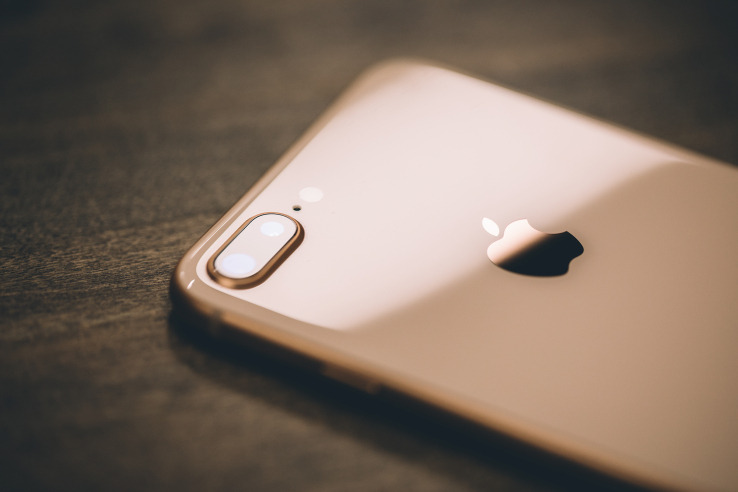The U.S. Federal Trade Commission's antitrust case against Qualcomm is going to trial on Friday, the outcome of which could have serious repercussions for Apple's global legal war with the chipmaker.
The non-jury proceedings beginning on Friday in San Jose, California are being overseen by District Judge Lucy Koh. Koh is well known for her involvement in tech industry lawsuits including Apple's infamous, years-long battle with Samsung.
The FTC suit was initiated nearly two years ago, accusing Qualcomm of forcing Apple into an exclusive modem chip deal between 2011 and 2016 in exchange for lower patent royalties. Qualcomm owns a number of key smartphone-related patents, and has often been accused of failing to follow FRAND (fair, reasonable and non-discriminatory) pricing.
Prior to the FTC action Qualcomm had already been hit with a $853 million fine in South Korea for similar practices. In fact that case led directly to Apple filing a $1 billion lawsuit against Qualcomm, accusing it of withholding rebates in retaliation for cooperating with antitrust investigators.
Since then governments in the U.S., China, Taiwan, and Europe have looked into Qualcomm's business deals. The company avoided most of a fine in Taiwan by agreeing to invest $700 million in the country, but has also been saddled with 997 million euros in fines by the European Union.
Meanwhile the private war between Apple and Qualcomm has only escalated with suits and countersuits around the world, and Apple suppliers boycotting royalty payments. Qualcomm has accused Apple of patent violations and handing trade secrets to rival chipmaker Intel, now the only provider of iPhone modems.
Apple has typically had the upper hand, but that changed towards the end of 2018 when Qualcomm managed to secure limited iPhone bans first in China, then in Germany. So far these only affect older models, and Qualcomm has had no luck trying to secure a U.S. injunction. Apple has tried to detour the Chinese ban with iOS tweaks.
The blowback of legal fights could eventually force the two companies to settle. Qualcomm executives have even claimed that a deal could happen within months, but as recently as late November Apple said that no talks were in progress.
 Roger Fingas
Roger Fingas







-m.jpg)






 Christine McKee
Christine McKee
 Malcolm Owen
Malcolm Owen
 Marko Zivkovic
Marko Zivkovic

 Andrew Orr
Andrew Orr
 Andrew O'Hara
Andrew O'Hara
 William Gallagher
William Gallagher



-m.jpg)



42 Comments
Apple still has the upper hand. Qualcomm only got limited bans by being "sneaky" in the other two cases. One because of an ex-parte request and the other because of refusing to allow trade secrets to be presented (and kept confidential).Contrary to reports the last few days, Apple isn't in any trouble. That said, they might make changes to their business model. One of those could be selling A Series processors to other companies. Apple could make modified versions and replace their Secure Enclave with ARMs own version (which Android vendors use). That would make it easy for Android vendors to adopt Apple processors and would still keep the Secure Enclave "secret". They could also remove (or limit) things like the NPU to bring their processors in line (feature wise) with popular Qualcomm processors.
This is the advantage you have when your processors are superior. You can dumb them down or limit their abilities and still come out ahead of the competition. Apple doesn't have to worry about an Android device outperforming an iPhone with one of their own processors (saving the best stuff for their own devices) but they can still sell a ton of processors to all those mid-range Android devices. Given the choice, who'd buy an inferior Qualcomm processor over a superior Apple processor?That would put a significant dent in Qualcomm's business.
Now I know this isn't currently likely, but if Apple comes out on the losing end in this legal fight (doubtful, but possible) then they have options available to really stick it to Qualcomm.
If Qualcomm is found guilty of abusing its patent rights they should lose those patent rights. This is a better solution than a simple monetary penalty. It would send a very strong signal to all companies that abusing patent rights has serious consequences.
I'll assume almost no one here (outside of Carnegie as we discussed it already) knows there has been a relatively recent shift in US policy regarding SEP's, F/RAND commitments and DoJ involvement with them, and the appropriateness of junctions/exclusion orders against "unwilling licensees". I believe that will be a major point that Qualcomm tries to make with Judge Koh.
No idea if she'll buy into the arguments made by Ass't AG Delrahim or not, but the US Attorney General's office stated roughly a month ago that they will be drafting new guidelines regarding standards-essential patent enforcement and cures. Changes are coming, and they may be more IP-holder friendly than might be presumed.
Regarding the FTC case itself I suspect this will be the tipping point. If Apple doesn't get most of what they want from it I would not personally be surprised at all if they go back to the negotiating table. That's a big if tho as I don't think Qualcomm can successfully argue every point needed for that to happen.
In any event the trial may not be as much of a slam-dunk for licensees as it may have appeared to be a few months ago.